Jungfer, Sie gefällt mir est un film de genre Comédie réalisé par Günter Reisch avec Wolfgang Kieling
Jungfer, Sie gefällt mir (1969)
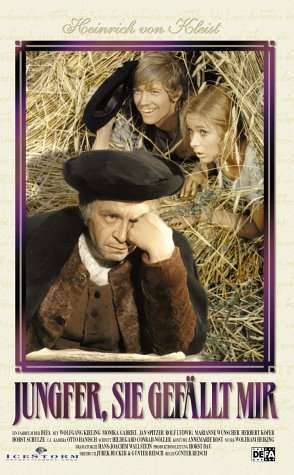
Si vous aimez ce film, faites-le savoir !
Jungfer, Sie gefällt mir is an East German film. It was released in 1969.
Acteurs
Commentaires
Postez un commentaire :
Suggestions de films similaires à Jungfer, Sie gefällt mir
Il y a 19 films ayant les mêmes acteurs, 13 films avec le même réalisateur, 41915 ayant les mêmes genres cinématographiques (dont 404 ayant exactement les mêmes 2 genres que Jungfer, Sie gefällt mir), pour avoir au final 70 suggestions de films similaires.Si vous avez aimé Jungfer, Sie gefällt mir, vous aimerez sûrement les films similaires suivants :
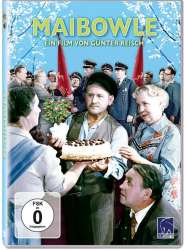
Maibowle (1959)
, 1h30Réalisé par Günter Reisch
Genres Drame, Comédie, Musical
Thèmes Musique
Acteurs Christel Bodenstein, Albert Hetterle, Erika Dunkelmann, Fritz Diez, Jürgen Holtz
Wilhelm Lehmann is informed that he will receive the Order of the Banner of Labor on his sixty-fifth birthday, for being the best worker in the most successful chemical plant in the country. However, it is soon made clear that all his grown up children have other plans for the day, and none of them can arrive to honor their father and their mother Auguste. But, after a series of comical mistakes that lead to utter pandemonium, all the sons and daughters eventually appear to greet Wilhelm as he is awarded the Order. The whole family drinks the traditional May wine, as they have done in every year.

Ach, du fröhliche (1962)
, 1h34Réalisé par Günter Reisch
Genres Drame, Comédie
Thèmes Noël
Acteurs Erwin Geschonneck, Horst Giese, Jutta Wachowiak
Note59%





Dresden, Christmas Eve. Veteran communist and factory director Walter Lörke is told by his daughter Anne that she became pregnant by a young man named Thomas Ostermann, whom she intends to marry. Thomas is revealed to be a sharp critic of the government. Enraged, Walter leaves the house. Outside, he begins to inquire about his would-be son-in-law. After a clumsy voyage in the streets of the city, during which he encounters many absurd phenomena, he discovers that Thomas had a friend whose parents escaped to West Germany. The friend was ostracized by society, but Thomas did not shun him, and was therefore barred from entering university. Walter returns home and talks to Thomas, who realizes that although he suffered injustices, he remains true to the ideals of the party. The two reconcile.

Ein Lord am Alexanderplatz (1967)
Réalisé par Günter Reisch
Genres Comédie
Acteurs Erwin Geschonneck, Sabine Thalbach, Carola Braunbock, Armin Mueller-Stahl, Angelica Domröse, Erika Dunkelmann
Note65%






Anton, der Zauberer (1978)
, 1h46Réalisé par Günter Reisch
Genres Drame, Comédie, Romance
Acteurs Ulrich Thein, Erwin Geschonneck, Anna Dymna, Barbara Dittus, Leon Niemczyk, Grigore Grigoriu
Note65%





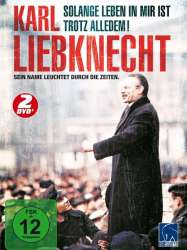
Karl Liebknecht (1965)
, 1h54Réalisé par Günter Reisch
Genres Drame, Biographie, Historique
Thèmes Politique, Politique
Acteurs Mikhaïl Oulianov, Albert Hetterle, Jutta Hoffmann, Erika Dunkelmann, Zofia Mrozowska, Siegfried Weiss
Note72%






Silvesterpunsch (1960)
, 1h31Réalisé par Günter Reisch
Genres Comédie, Musical
Thèmes Musique
Acteurs Erika Dunkelmann, Christel Bodenstein, Alfred Müller
Note51%





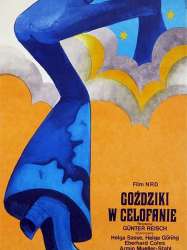
Nelken in Aspik (1976)
, 1h30Réalisé par Günter Reisch
Genres Comédie
Acteurs Armin Mueller-Stahl, Norbert Christian, Helga Göring, Brigitte Krause, Robert Trösch, Winfried Glatzeder
Note65%





Wolfgang Schmidt travaille comme graphiste publicitaire à La Maison de la publicité. Il est mauvais, mais il sait parler et a ainsi beaucoup de relations. Il passe son temps libre à commenter des matchs de football et voudrait en faire son métier. Siegfried Huster, de la grande entreprise Bureau Central des Petits Imprimés, cherche un nouvel employé pour le siège. Le dossier de Schmidt lui fait bonne impression et, bien que Kühn, la directrice de La Maison de la publicité, essaie de le convaindre de l'incapacité de Schmidt, il ne la croit pas et décide de le convoquer. Lors de sa poignée de main avec Huster, Schmidt la trouve si forte qu'il serre les dents et perd une incisive. Comme il a tendance à bégayer, il ne dit rien aux questions de Huster puis parle rapidement.

Das Lied der Matrosen (1958)
, 2h6Réalisé par Kurt Maetzig, Günter Reisch
Genres Drame, Historique
Thèmes La mer, Transport, Politique
Acteurs Günther Simon, Raimund Schelcher, Ulrich Thein, Hilmar Thate, Siegfried Weiss, Hans Finohr
Note62%





As the news of the October Revolution sweep through the world, the German High Seas Fleet's command, wary of a mutiny, decides to send all its ships to a suicide mission in the English Channel. Sailors Albin Köbis and Max Reichpietsch are sentenced to death for political activity. When the socialist sailor Steigert, a member of the firing detail, cannot bring himself to shoot them, he is arrested. On the cruiser Prince Heinrich, Steigert's friends Lenz, Lobke, Kasten and Bartuschek receive Vladimir Lenin's transmit to all of mankind calling for peace. Slowly, the sailors in Kiel — all members of different socialist parties: the Social Democrats, the Independent Socialists and the Spartakists — begin to realize the need for a revolution. The workers and the shipmates rebel against the officers, but the political gaps between them lead the uprising to a failure. In the end, many of the rebel sailors attend the foundation conference of the new Communist Party of Germany.
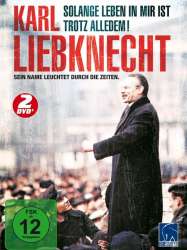
Solange Leben in mir ist (1965)
, 1h54Réalisé par Günter Reisch
Genres Drame
Thèmes Politique
Acteurs Albert Hetterle, Erika Dunkelmann, Siegfried Weiss, Hans Finohr, Adolf Fischer, Werner Dissel
Note72%





The film opens in Berlin in 1914, as Germany is preparing for World War I. Liebknecht (Schulze) receives a call from a fellow lawyer and revolutionary, Mr. Rauch, that documents have been found proving the German heavy arms industry's secret involvement in the buildup to the war. He brings these documents to a meeting of the Reichstag, accusing Gustav Krupp and his company of bribing officials to release military secrets. In addition to this, Krupp and his company wrote to ask the French media to state that the French military has twice as much artillery as they actually possess so that they may provoke a surge in militarism. Afterward, while celebrating a friend's wedding, Liebknecht learns of the assassination of Archduke Franz Ferdinand, recognizing that this is the war the German imperialists were seeking. However, the resources for war still need to be approved. Liebknecht immediately begins campaigning among the public, denouncing the war as a means to secure profit for the capitalists. In an SPD party meeting, Liebknecht is one of only fourteen members to vote against the war credits. In the subsequent Reichstag meeting, he votes with the party discipline in favor of the war credits, to the public's surprise. He announces in the party meetings that he will no longer yield to party discipline and will stand by his anti-militarist principles even if the party leadership will not do the same. Liebknecht is the only one of the Reichstag — including 111 SPD representatives — to vote against the war loans, resulting in a number of death threats and work bans. Despite his immunity as a Reichstag member, Liebknecht is called to serve on the front as a sapper. It is here that he writes his 1915 manifesto, "The main enemy is at home!" The manifesto is passed among his fellow soldiers on the front before returning home. While he is away, Paul Schreiner, whose wedding Liebknecht attended earlier in the film, dies on the front. This leaves his wife Käthe to raise their newborn child alone and make Liebknecht's manifesto public.
 Connexion
Connexion



